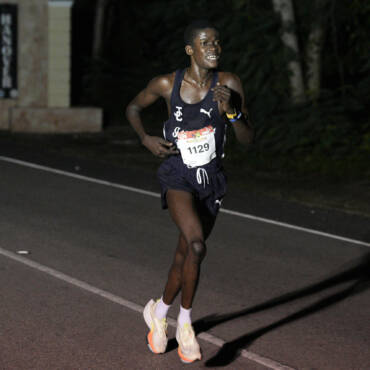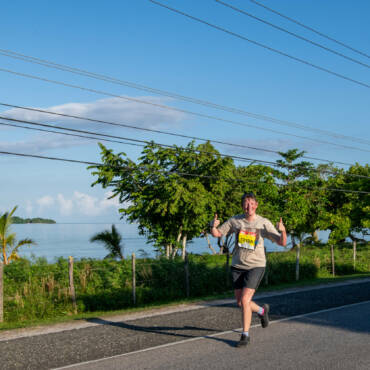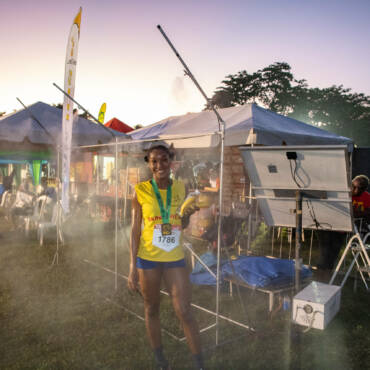We received that question recently. With under 90 days to go to Reggae Marathon 2011 it seems like a good question to ‘Ask Dan’. Here is his response:
It depends what you mean by treats and by train. This being the Reggae Marathon blog, we can safely assume at least a 10K goal distance and maybe even a full marathon. I think we should assume a training program of at least three days a week and distances appropriate to the goal race.
By way of full disclosure I must say I really don’t feel that running/training should be the “medicine” that needs a “spoon full of sugar”. I would love it if everyone saw achieving a distance, a time or pace, or a body of training as the reward. That is not to suggest a testing workout isn’t hard, but I prefer to disconnect the idea that running is something you wouldn’t do if you didn’t have to, from your training plan. Treats seem to tie the ideas together. “Do this hard thing and you get a reward.” Please, no.
Food/nutrition (and everything falling in that category) is another matter. While a balanced diet is essential, it may occasionally include things on the edge of being “nutritionally necessary” shall we say.
First, let’s get a nasty hard fact out of the way. Depending on how much you weigh and how fast/far you run, you will burn a certain number of calories. In simple yet technical terms, work amounts to moving a mass (you) over a distance (26.2 miles) in a time (oh, let’s say 4 hours). What, it isn’t news to you that running is work? But seriously, work requires expenditure of energy and calories are a measure of energy. Give or take, doing a marathon burns the equivalent (~3500 calories) of one pound of real “meat”. Sure, run a marathon and you’ll drop more than 1lb. Depending on the weather, the course and how hard I run, it is common for me to drop 5-6 lb. Almost all of that is water. It comes back.
Training for a long race is not a great way to lose weight. Not to say you won’t lose a bit of weight, but you should be ensuring that you are taking in the nutrients required to train well and recover from the stress of a good workout. You are building something: a runner’s racing body. Never assume because you have no hope of winning, that you aren’t preparing for something more than a jog in the park. When you train for a race, you commit to stepping it up a notch (or two). Sound nutrition is part of that.
Assuming moderation from the start, calories per se, whether from a refreshing libation on Friday night or a tasty ice-cream sundae, are just part of your total intake. There is a lot to qualify in that statement, but it is a whole different topic, so we’ll just move on with the general idea. People make a big mistake in thinking that training for a race allows them to take the brakes off when it comes to calorie intake and equally, that because they are in training they must stop consuming certain things. You can look up the calorie and nutrient content of various foods, but trust me when I say 3500 calories isn’t that much.
I believe to live well and eat a healthy diet over the long-term, it should be a pleasure and not a chore, just as I believe running should bring its own rewards in the very doing of it. If you thought I was going to tell you what you could or couldn’t have, or how much – SORRY.
I hope I have left you with the understanding that you can vary personal eating and drinking habits to keep them sustainable and pleasurable and in balance with your training program, which should also be sustainable and enjoyable. I will leave the specifics to you.
Enjoy your running and enjoy your food, just keep both of them in balance!
If you have any personal tips you’d like to share about training and nutrition, leave a comment.
Until next time…
Reggae Marathon RunninGuy



